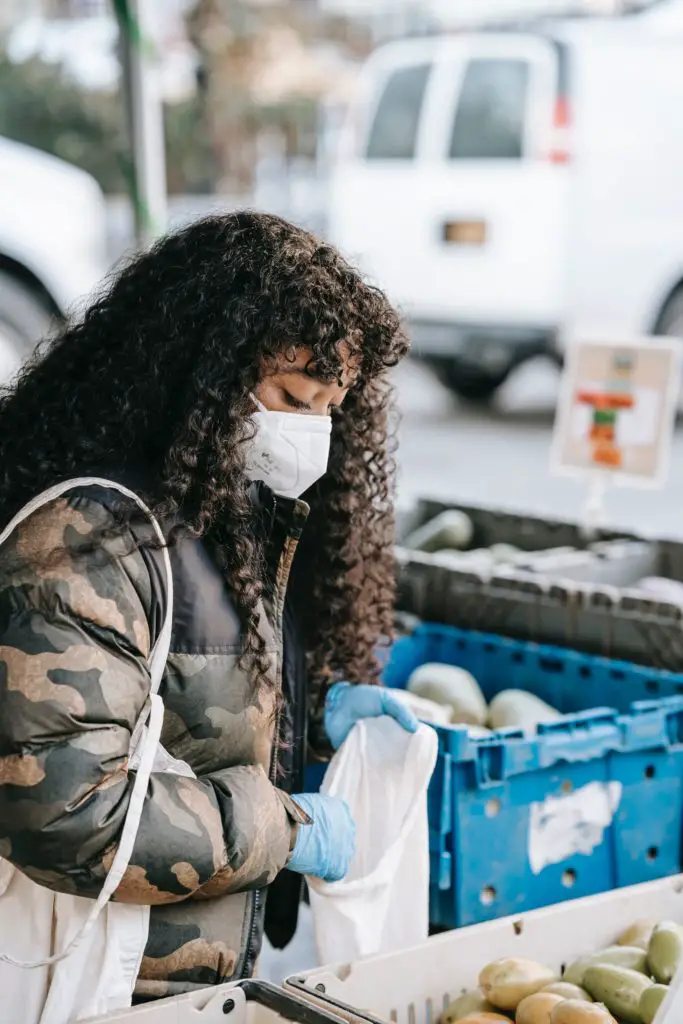Bulk food bins are an easy way for store owners to cut down on their plastic use. Although they are environmentally friendly, they are unsafe and unsanitary. A lot of germs are harbored in the bins and cross-contamination of diseases can easily happen. See Are Bulk Food Bins Safe And Sanitary?

Are Bulk Food Bins Safe And Sanitary?
Bulk Food bins are commonly used to store and dispense dry foods, candy, and dried fruits in grocery stores. The generally used bulk bin in American stores is the scoop bin. It is very unsanitary and unsafe because customers can easily cross-contaminate diseases and germs. They can also be a harbor for microorganisms and pests. During this Covid 19 times, food bins are impractical and have been seen to transmit the disease.
How do bulk bins work?
Customers open the lids of the bins and scoop whatever they want and then get it weighed and finally get billed for it. Other food bins have dispensers which customers turn a knob and the food comes from the bottom. Here in America, the most common food bin is the scoop bins.
In this article, we will look at the pros and cons of bulk bins and we will ultimately see that the cons outweigh the pros.
Advantages of using bulk bins
A customer does not have to overbuy. You can buy the exact amount you need.
Cuts on plastic use.
Disadvantages of using bulk bins
Transfer of germs as everyone touches the scoops or dispensing taps
Food in bulk bins have no expiry date written on them hence the customer could easily get expired foodstuff
Having worked in a whole foods store before, we washed our food bins once a month or when the food in the bins is over. This is unsanitary and unsafe.
Foods overstay in the food bins and harmful microorganisms can easily be found in the bins
While using food bins customers do not know the grocery brands. They could be getting fake and counterfeit foodstuff. This is because they do not know the brand or expiration date of the food in the bins.
During this Covid 19 times, the disease can easily be cross-contaminated through the customers refilling their tins.
Food in whole food stores is slightly more expensive than the pre-packed food from retailers.
One could easily be overpriced because of the weight of one’s jar or container. While weighing the food the store attendant weighs the foodstuff’s weight plus the weight of the jars. One could easily be overcharged.
How does cross-contamination happen while using food bins?
As we earlier mentioned, most food bins here in the states are scoop bins. So if one customer comes and uses the scoop and the next one does the same. Cross-contamination may likely happen. When the pandemic began a few people in San Francisco got Covid 19 from whole foods stores because of shared scoops. Also, store owners do not wash and sanitize food bins as frequently as they should. Working in a whole foods store for 2 years and we washed our food bins only when the food was over. Foods could stay in the bin for even two months. This is very unhealthy and hazardous.
Alternative ways of storing food in whole food stores
As we have seen bulk bin disposal is unsafe and unsanitary. They are various ways of food storage that are safer and more sanitary. They include;
Gravity store bins. These is bins that dispense food at the bottom. This means a customer doesn’t have to touch the bin or even use the scoops. It’s a safer way to store food in stores
Store packed foods. A store here in San Francisco pre-packs their dried foods in the store. You let them know how many grams you need and then they pack it for you.
Conclusion
As we have seen bulk bins are unsafe and unsanitary. Specifically during this Covid era. The food bins harbor microorganisms and can easily aid in the cross-contamination of diseases. We can look for alternative methods of food storage in whole food stores.
Frequently asked Questions
Do bulk bins harbor biological microorganisms
Yes, they do. This is because everyone touches the bulk bins, the scoops, and dispensing taps.
How could we make bulk bins sanitary?
Whole foods can assign a worker to serve the food for the buyers. This is to prevent direct contact. Also, whole food sellers should sanitize and wash the bins every day.
Do food bins cut on plastic use?
Yes, they do. This is because while using food bins we use recycled jars and tins cutting on the plastic used to package.

